One high-quality link can easily cost around $350–$1000, even if you don’t technically pay for links (overhead, time cost, etc.).
To get tangible results from link building, you need hundreds of those.
As a professional link building service, we recently surveyed 518+ SEO specialists and found the average acceptable price for a single high-quality backlink is $508.95.
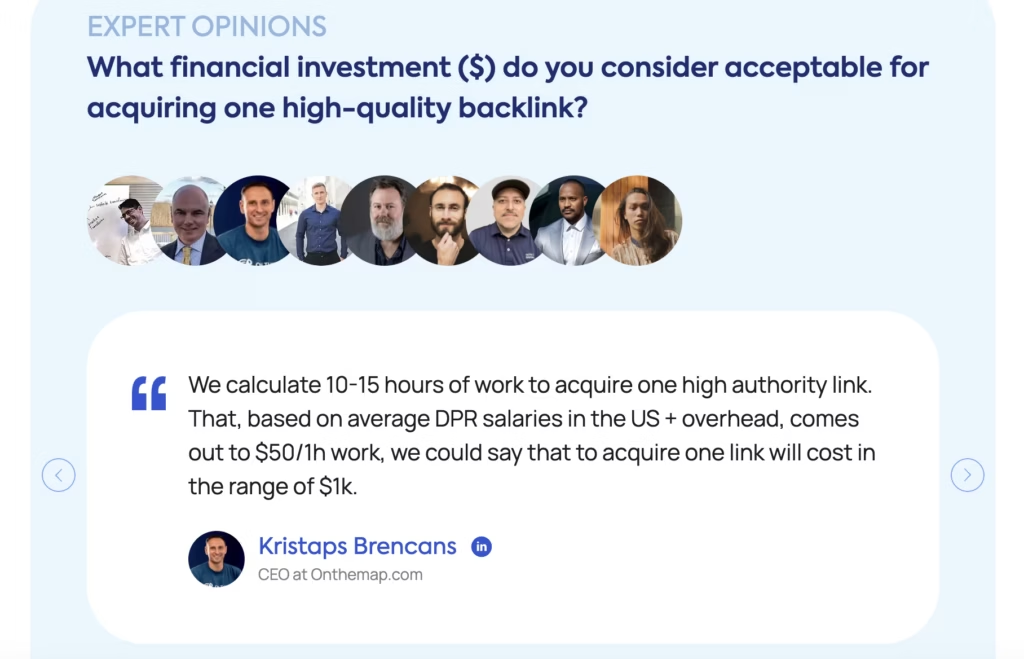
Why spend thousands of dollars to build links that aren’t even a primary ranking factor?
I’m here to give you the answer.
TL;DR:
- Link building is vital for SEO. It's how you gain backlinks that will signal to search engines that your content is high-quality and trustworthy.
- While the number of links is important for your site’s search performance, the number of unique referring domains has a more substantial impact on your site rankings.
- Google favors brands, but so do people. Link building helps you build a strong brand and boost your online visibility.
- AI search favors brands.
- When done right, link building can drive referral traffic to your site.
- By building high-authority links, you’ll increase your own site’s domain authority and have to make less effort to achieve your SEO goals.
- When building links, you can also build your reputation as a thought leader.
- Link building is a vicious circle: content that already has lots of backlinks typically ranks well in search results, attracting even more traffic; content that gets lots of traffic and ranks high is naturally seen as valuable, which attracts even more backlinks.
- If you manage to place your links under the right anchor texts, your strategy will also affect your bottom line.
- When reputable websites link to your new content, search engines index it faster.
- With smart link building, your content becomes a self-promoting asset.
- Having your content linked to trusted resources may bring you partnerships and collaboration opportunities.
What Is Link Building?
Link building is a deliberate effort to gain links from other sites to your target pages.
It's a vital part of SEO because links are among the main ranking factors. When reputable websites link to yours, it signals to search engines that your content is valuable and trustworthy.
You might have heard that links don't carry significant weight in SEO anymore.
So let me show you something.
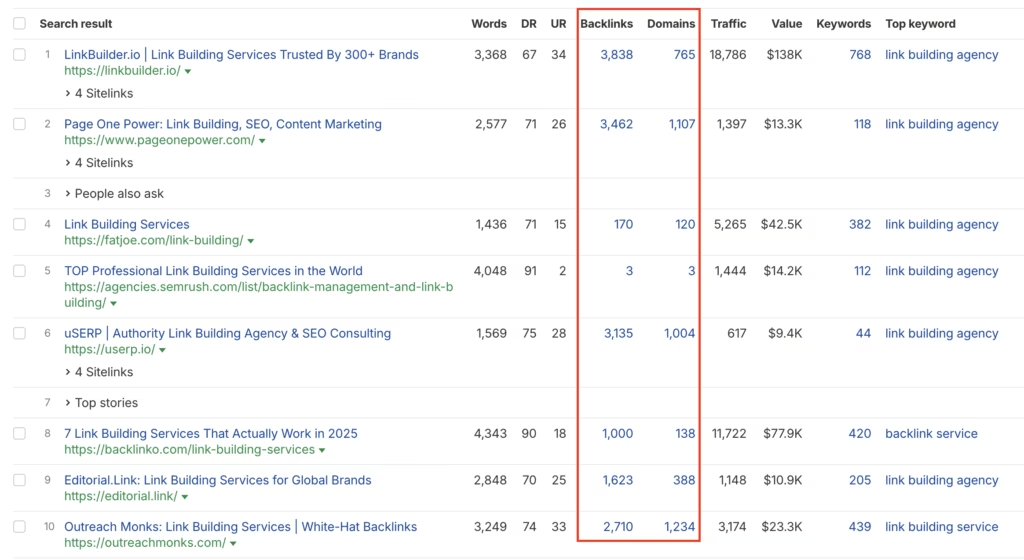
These are the top search results for the “link building agency” query.
All high-ranking pages have between 3 and 1,260 inbound links.
Just a coincidence?
Well, given the strong ties of these resources to SEO, no doubt they do link building among other things.
Let's try a less SEO-centric keyword like "marathon training."
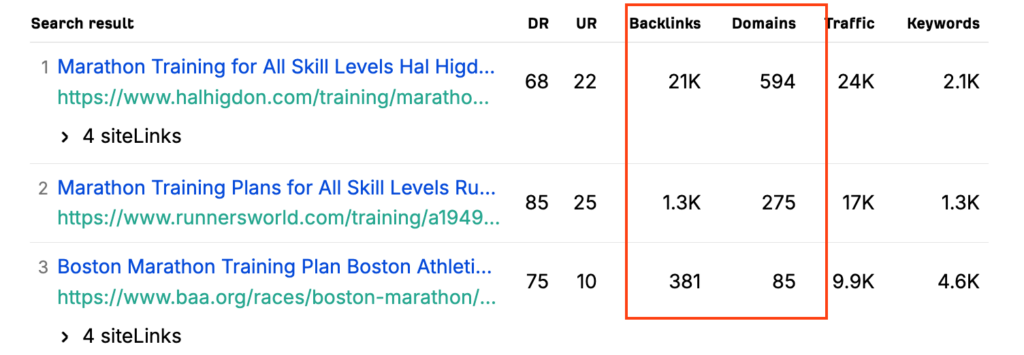
Even here, the top-ranking sites have hundreds, even thousands, of backlinks. Alright, this is anything but a coincidence.
Links are indeed critical for your site’s organic performance, and you can hardly expect them to pile up naturally. This is what link building is for. It’s not easy,* but its effect is well worth the effort.
*I’m currently surveying top SEO experts, and over 40% of them agreed link building was the most challenging part of SEO for them. Stick around to see the full report.
10 Benefits of Link Building for SEO
I’ve counted at least 10 benefits of link building for SEO. Read on to discover each.
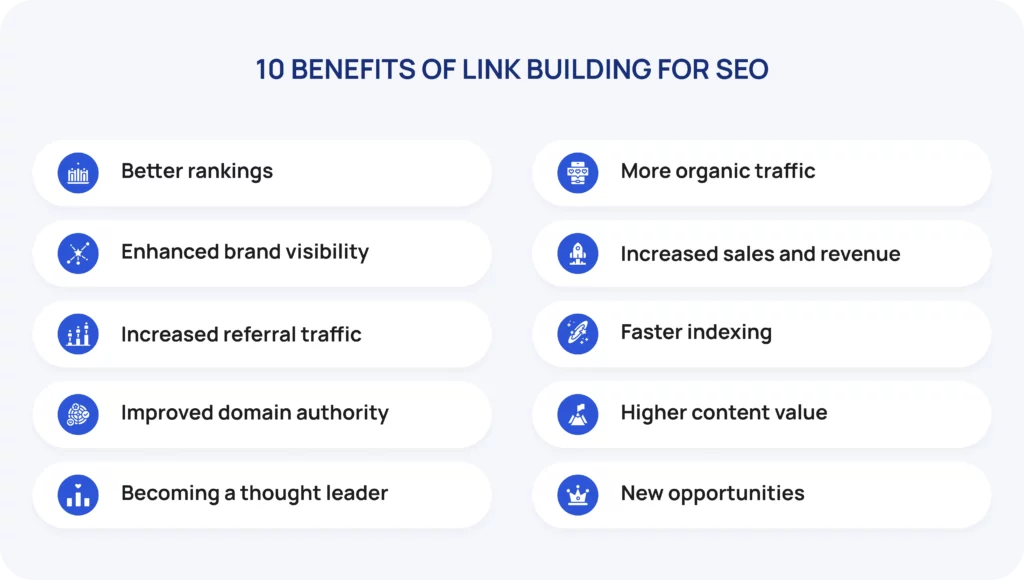
1. Better rankings
We’ve already figured that links are a ranking factor. When you publish a new piece of content, building high-quality links to that page is the fastest way to boost its search positions.
But how exactly does a number of links correlate with a site’s search rankings?
The research by Backlinko has revealed that pages with lots of backlinks rank above pages with fewer inbound links. The #1 result in Google has an average of 3.8x more backlinks than sites in positions #2-#10.
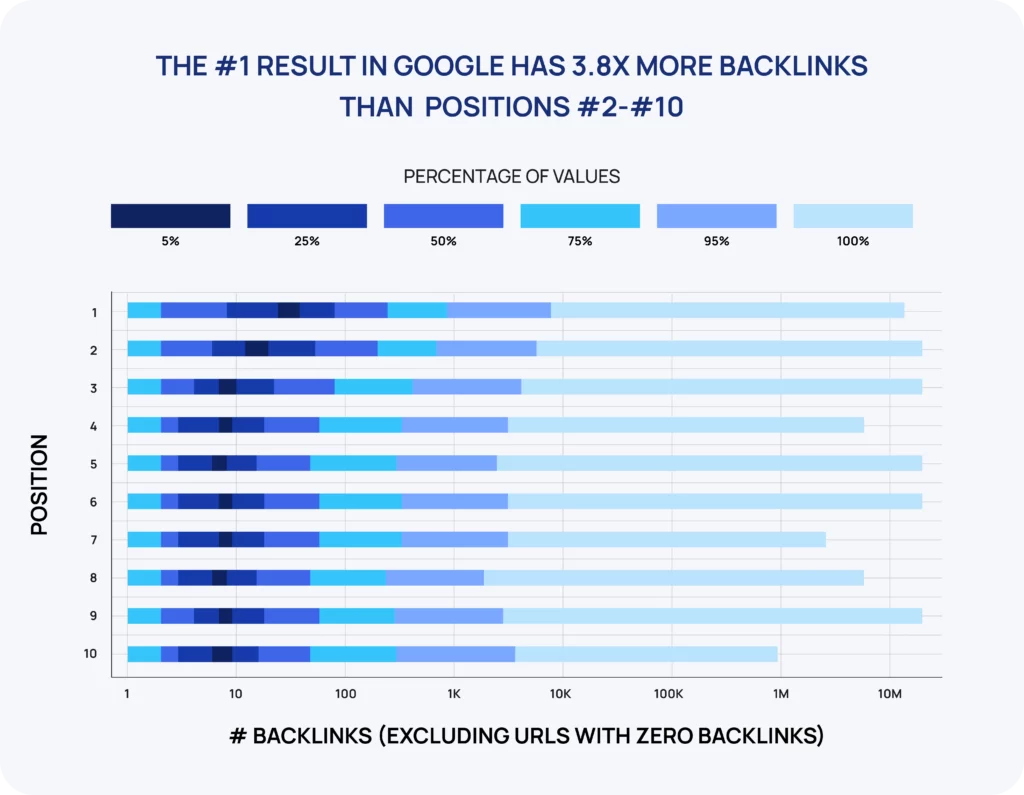
The numbers show that reaching the top 5 isn’t much more difficult than reaching the top 10. But if you want to hit the 1st position, you’ll have to work hard.
Interestingly, the number of unique referring domains has a more substantial impact on rankings than the total number of backlinks. The top 3 ranking pages usually have a more diverse range of referring domains, meaning that several links from one site don’t carry as much weight as one quality link from a unique source.
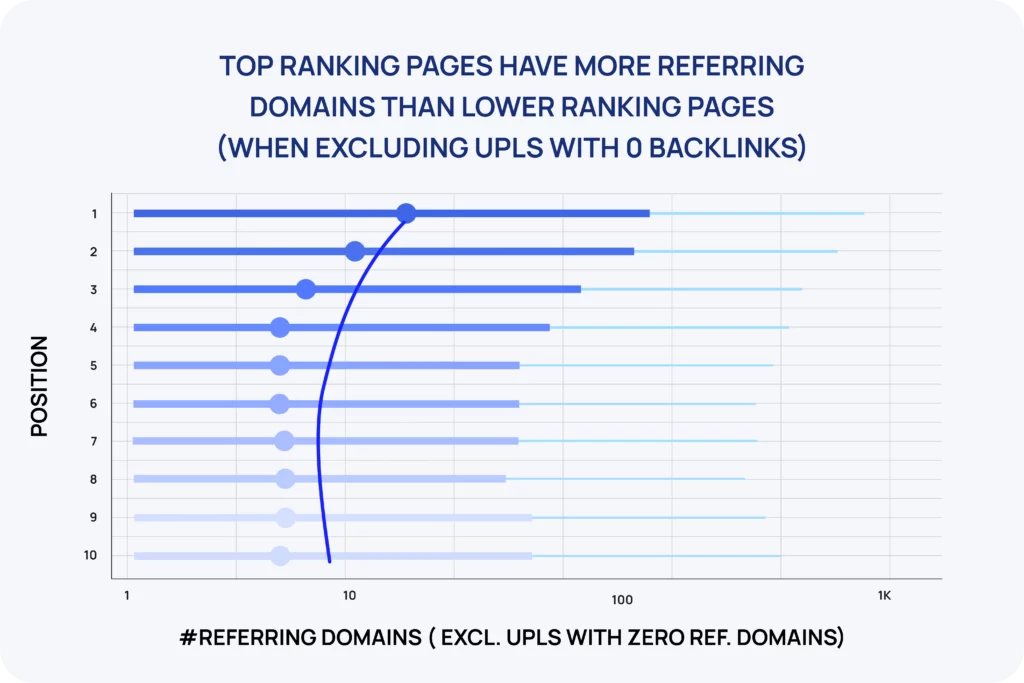
All in all, the data clearly demonstrates the positive effect of link building on search rankings.
2. Boost brand visibility (matters for AI search!)
Link building is not just about rankings.
It helps make your brand visible and builds authority in your space.
The stronger your online presence, the more likely Google and AI-powered search tools are to favor you.
Does Google really favor brands?
It seems so.
Big names often outrank smaller sites, not necessarily because they have the best content or the most backlinks, but because they are trusted.
That trust comes from a mix of recognition, authority, and user behavior.
Recently, I searched the “marketing automation benefits” query. First off, all of the top-ranking pages belonged to established sites with a DR of 90 and higher.
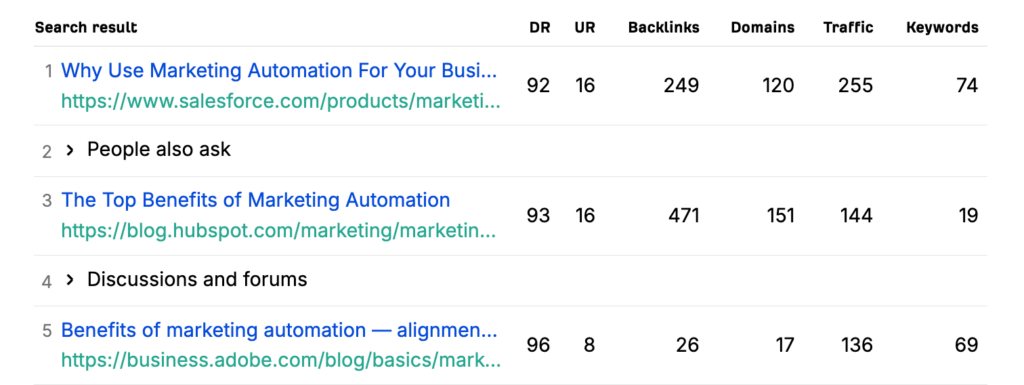
Side note: You can also see that links weren’t the decisive factor in this case — for instance, Adobe has only 26 backlinks.
It’s also likely that links were the consequence of high rankings, not the cause.
People click on names they recognize.
And today, it is not just Google watching. Tools like Google’s AI Overviews and ChatGPT pull sources based on authority signals and user behavior.
The more people see your brand, the more likely they are to pick it.
Over time, that tells both search engines and AI tools that your site should show up in search results and AI-generated answers.
3. Increased referral traffic
If done the smart way, link building can not only boost your site’s rankings and visibility but also drive referral traffic to your site (yes, thus boosting your visibility — in SEO, everything is interrelated).
Now, don't get me wrong. People aren't clicking every contextual link they stumble upon. However, they do click links that promise value. Think about those tool roundups, PR mentions, or in-depth articles where links expand on an idea.
Say, you want a link from HubSpot. The domain has organic traffic of around 15M — earning a link from it will absolutely bring you great referral traffic, won’t it? It depends.
The link in the screenshot below (by the way, it’s broken) leads to an external article that explains how to use tie-down questions to close deals. Even if thousands of people read the original HubSpot article, only a fraction would be interested in that specific topic enough to click the link.
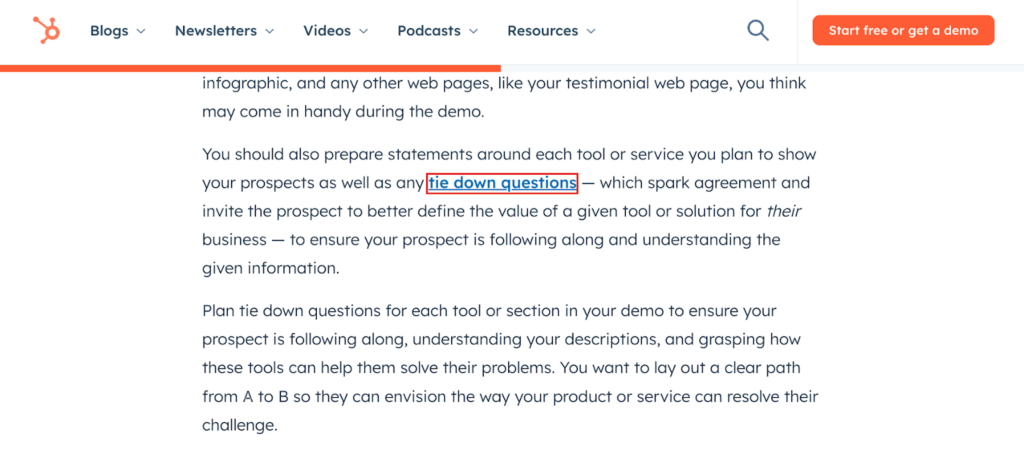
However, I have another example of a link from HubSpot that actually drives referral traffic to the linked site. The Editorial.Link team has secured a placement for our client, Sitechecker, in HubSpot’s list of the best SEO tools. Since readers actively seek tool recommendations, this link has huge potential to generate significant referral traffic.
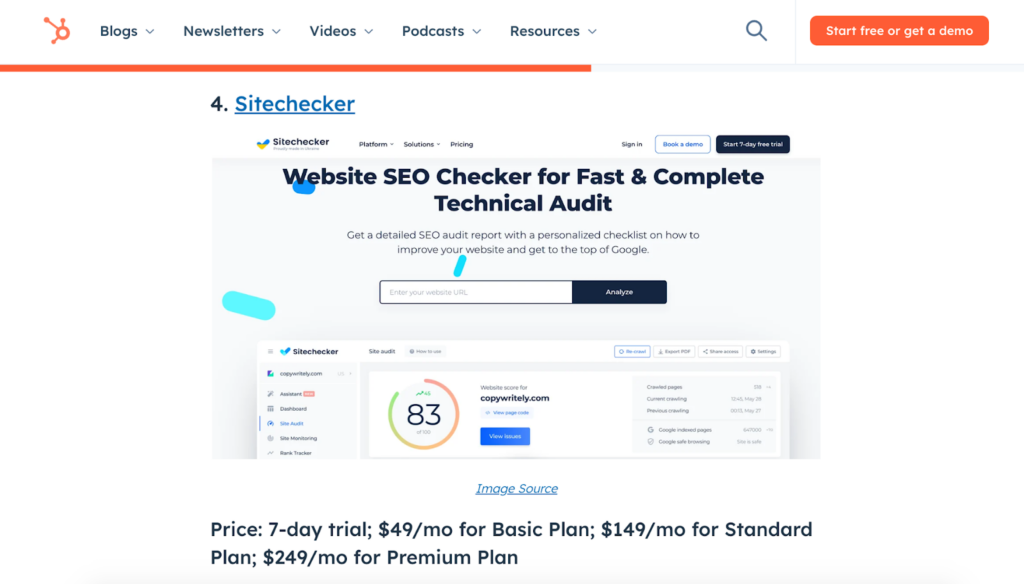
4. Improved domain authority
Have you heard of “link juice”?
This is the SEO term for the authority or "power" passed from one site to another through links. Every time you get a backlink from a high-authority website, a bit of their "link juice" flows to your site.
Over time, as you accumulate high-quality links, your own site's domain authority improves. This translates into better trustworthiness in Google's eyes and, consequently, higher rankings.
You've likely heard the phrase "The first million is the hardest" — which means it's tough to build something from scratch. But once you have resources, the possibilities are endless. Domain authority works similarly.
The more links you have, the higher your authority. And with greater authority, fewer links are needed to push individual pages towards those top rankings.
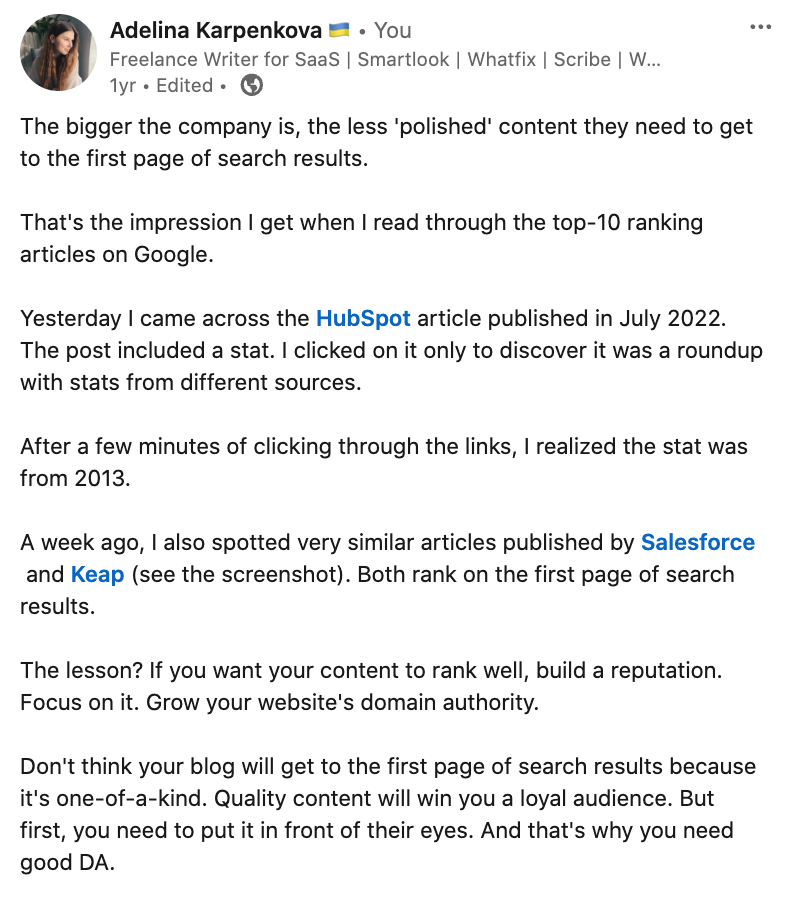
Does it have anything to do with Ahrefs DR?
Although I usually advise against evaluating sites solely based on their DR, the metric does indicate the website's overall link profile strength and potential for ranking well. Backlinko’s research has also shown that a site’s overall link authority (in this case, link authority is measured with Ahrefs DR) strongly correlates with its rankings.
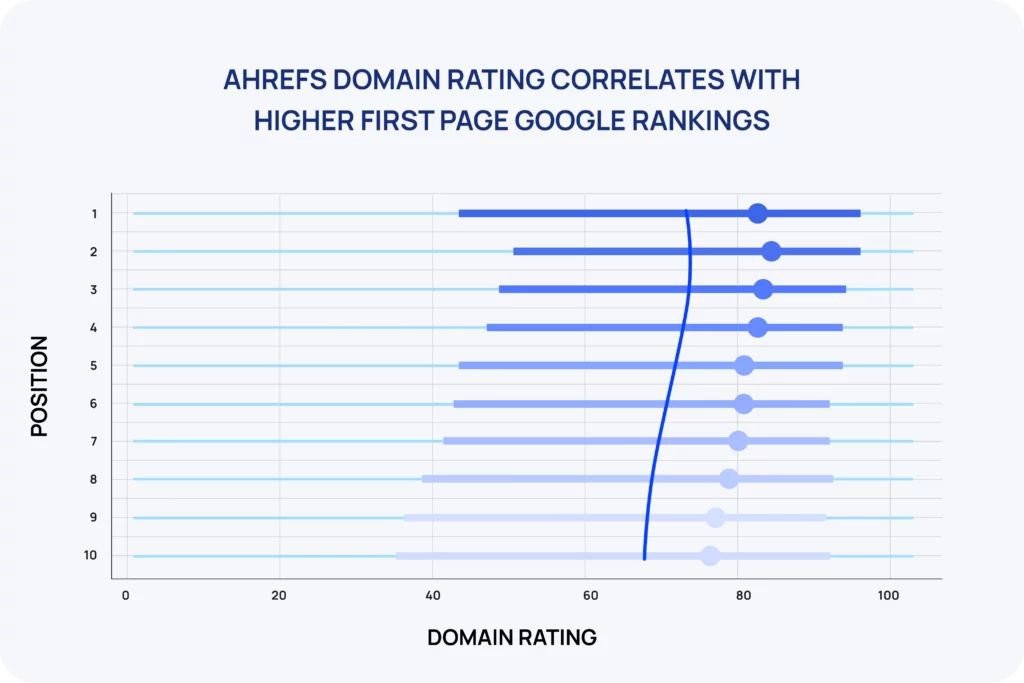
Google may not use DR to determine your rankings, but you can use it to gauge your position against your competitors and track your progress.
5. Becoming a thought leader
When you build links, you connect with many influential professionals in your niche. By collaborating with them and contributing valuable insights, you can build credibility in your field and become a thought leader.
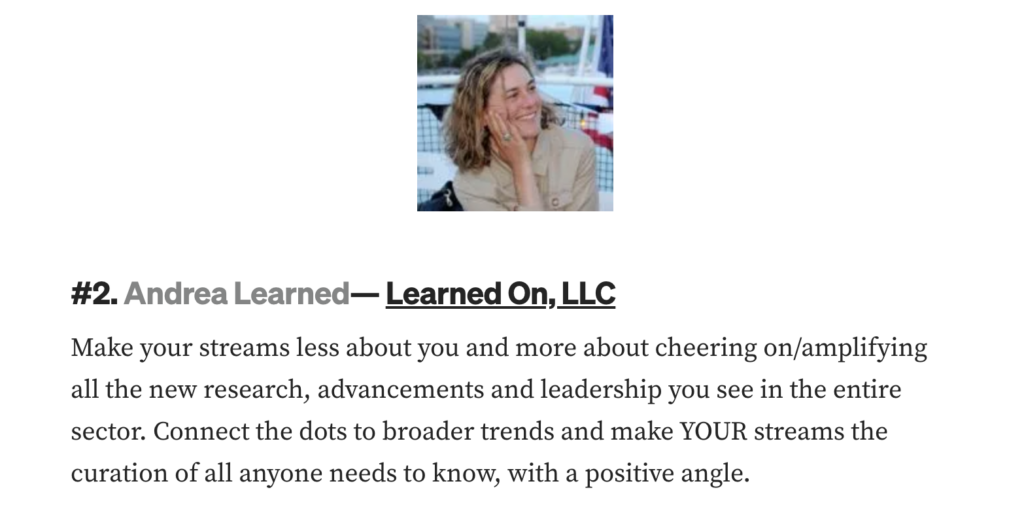
Take HARO link building or any of its alternatives. When you respond to the journalist’s request, your goal is to gain a link to your site. As your insightful comments start appearing in articles, your reputation grows. This can lead to people directly seeking your expertise for questions or services related to your niche.
6. More organic traffic
First, the sad facts. According to Ahrefs, almost 97% of content gets no traffic from Google.
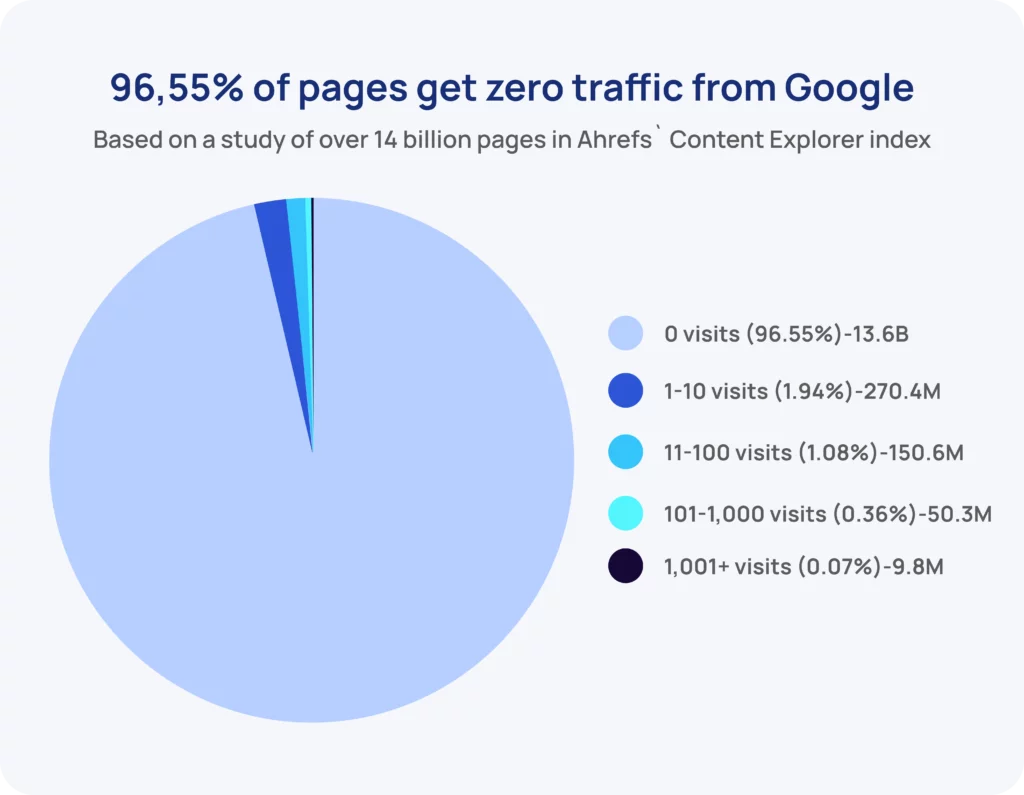
At the same time, Backlinko’s findings show that 95% of all pages have zero backlinks. While a page without links can reach the first page of search results for a low-competition query, there’s definitely a correlation between the number of links and your site’s traffic.
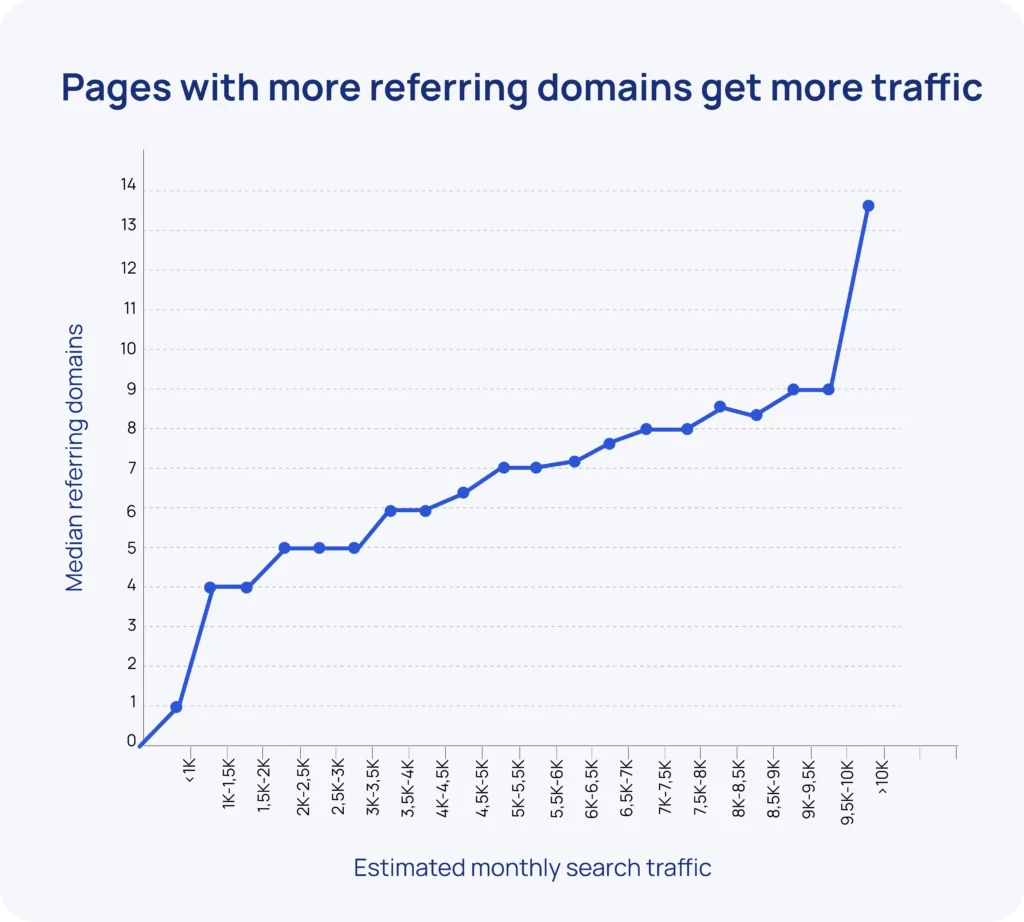
Pages without traffic are unlikely to attract links, and sites without links often struggle to gain visibility in search results. It’s a vicious circle.
The thing is, link building doesn’t automatically drive you tons of organic traffic. Only high rankings do. Another research by Backlinko has uncovered that the top 3 Google search results get 54.4% of all clicks. And if you rank below position #20, you can hardly expect any traffic, no matter how well-optimized your site is.
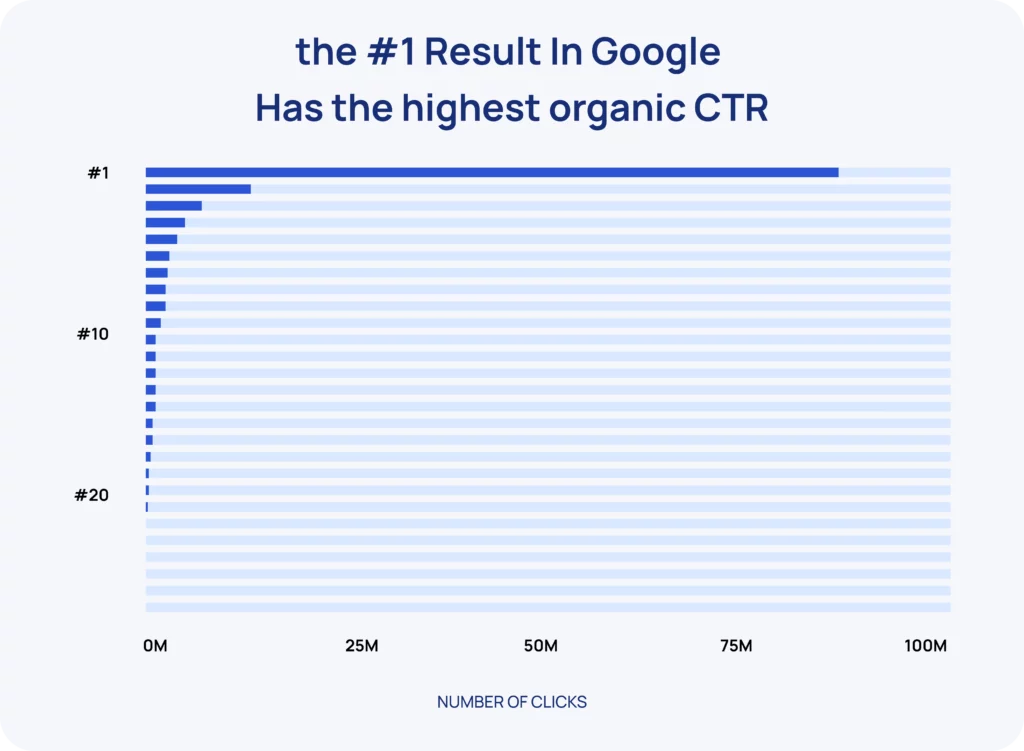
Long story short, links are a tool to get your site to the first page of search results. Once there, your site’s traffic will skyrocket.
Our clients can vouch for this approach. When we started building links for PandaDoc, the site averaged around 186,000 visits/month. Twenty-two months and 205 high-authority links later, the site’s traffic tripled.
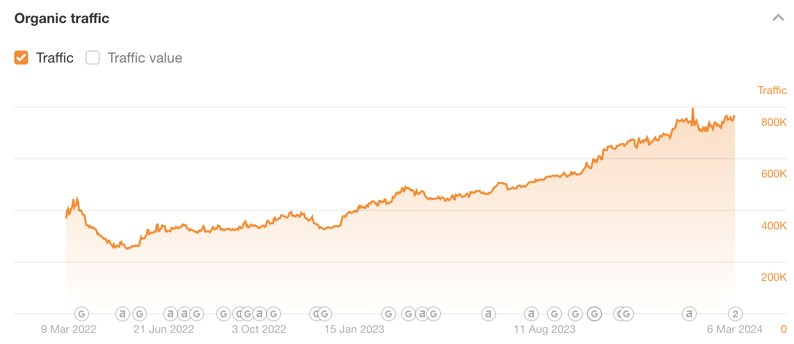
7. Increased sales and revenue
While the primary focus of link building is improving SEO, its outcomes ultimately impact your bottom line.
I’d like to say that increased traffic immediately results in increased conversions, but (there’s always a but!) that’s not always the case. This is where choosing the right anchor texts plays a crucial role.
Let me explain.
When I google “keyword research,” the results vary from tool listicles to landing pages to “how-to” articles. Pursuing this anchor text with your link-building efforts is senseless for two reasons: the keyword difficulty is too high and the lack of clear intent.
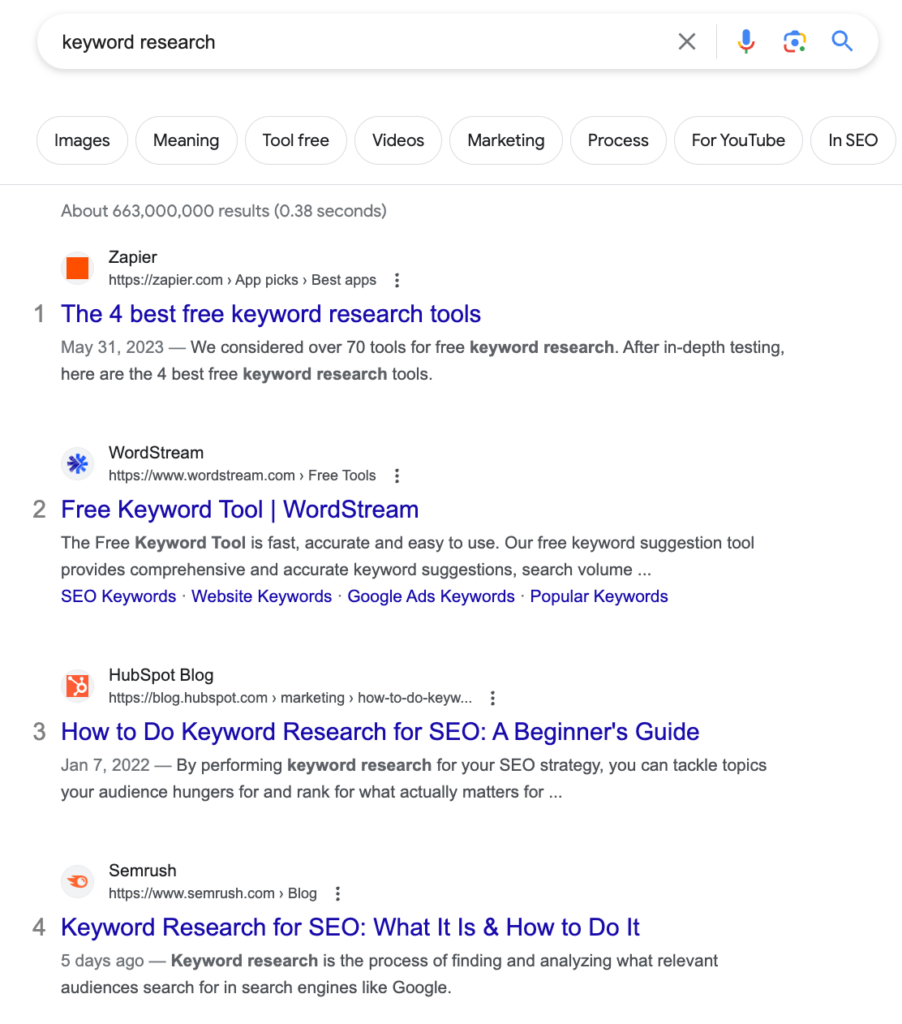
Even if a miracle happens and you get to the top 3 for this keyword, a large portion of the audience clicking the link will bounce, not being able to find what they need on your page.
Instead, focus on long-tail keywords with clear commercial intent. It's far more valuable to rank high for low-volume queries that attract potential buyers than to chase unrealistic high-volume keywords that will only bring unqualified traffic.
8. Faster indexing
Do you publish new content or update existing pages regularly? Good news — link building is the best way to get Google to index your content faster.
When reputable websites link to your fresh content, it signals to search engines that your page is genuine and worth crawling. The faster you’ll have it indexed, the faster you’ll see positive performance kick in.
9. Higher content value
If you publish exclusive research that nobody links to, people won’t be able to find it, and it will hardly bring any value to your brand. However, building even a small number of links can jumpstart a snowball effect.
And this is where things get really exciting. Quality backlinks signal authority and relevance not only in the ‘eyes’ of search engines but in the eyes of your audience, too. As people see your content featured on other sites, they naturally perceive it as trustworthy, making them more likely to link to it organically.
With smart link building, your content becomes a self-promoting asset!
10. New opportunities
If you choose strategies like relationship-based link building or PR, you’ll meet a lot of creative people along your way. They may offer you to participate in podcasts, feature you in interviews, contribute to research reports, or other activities that could boost your online visibility.
When people see your content linked from sources they trust, it becomes easier to get them to take action.
For example, if you want to be featured on an industry blog, having an existing link on their site can help. It shows you’re already known to them and makes it easier to reach out for a collaboration.
Reach Your Goals With Link Building
Want to enjoy the benefits of link building without spending time on it? We’re here for you.
Editorial.Link is a team of top link-building experts earning backlinks from reputable sites like hubspot.com, monday.com, cloudways.com, systeme.io, wordstream.com, and others. Regardless of your site’s DR or DA, we’ll gain high-authority, contextually relevant links that will help you reach your SEO goals. Let’s discuss what we can do for you.

